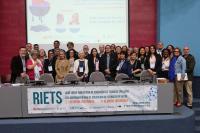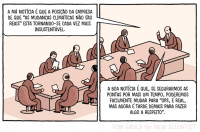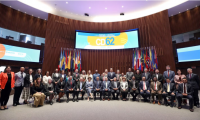Pan-American Health Organisation finalises public consultation on universal coverage
In August, the Pan-American Health Organisation concluded the public consultation stage on the document “Strategy for Universal Health Coverage”, approved in May at the 154th Session of the PAHO Executive Committee. The process, led by the country’s ministries of health, involved participation by civil society, academic institutions and health professionals, who gave their opinions on the proposed model. PAHO reports that all the countries in the Americas region were consulted and that six South American nations – Argentina, Bolivia, Brazil, Guyana, Paraguay and Uruguay – have published consolidated reports.
Argentina, Bolivia, Brazil and Uruguay were critical of the concept of universal coverage proposed by the PAHO. Brazil and Bolivia were the most emphatic, with Brazil declaring, for instance, that “the concept of universality and equity applied in the PAHO document is restricted in that it presupposes a system functioning on the predominant mechanism of the purchase and sale of health services”, which does not correspond to the model of universal health system adopted in Brazil. Along the same line of argumentation, Bolivia’s criticism was based on the understanding that “health is conceived as a public social good and the responsibility of the State, not as an individual good guaranteed by insurance”.
Argentina proposed advocating “universal access to health, instead of universal coverage, given that the term ‘access’ is broader”. Uruguay stressed that the “model proposed by the WHO carries with it the risk of slipping into the idea of minimum service provision packages, while not insisting on issues of comprehensiveness”.
Paraguay mentioned that the document ought to emphasise the importance of the Primary Health Care (PHC) system, and “should also include cross-cutting concerns such as health promotion and gender”. Guyana stressed that, having a fragile health system, it felt “the need for multi-sector collaboration among ministries and other stakeholders in order to achieve a model of universal coverage”.
Next steps
The countries’ suggestions will be submitted to the 53rd Meeting of the PAHO Board, from 29 September to 3 October in Washington. Health Systems area manager and Human Resources Technical Unit coordinator for PAHO/WHO Brazil, Felix Rígoli, who took part in the Brazilian consultation, asserted that all the countries’ opinions will serve as input to a document that is going to be useful to improving access to health for populations of the Americas. On the question of the relationship between universal system and universal coverage, he emphasised that: “What everyone wants is broad, equal, quality access for all. That requires a health system that is universal. There are many dimensions to universal access. One of them may be to have a universal system”, he concluded.
Universal health coverage permits private financing and health insurance models, which guarantee access to services only to the extent it is paid for. The concept is different from that of the universal health system – advocated by the UNASUR – which seeks to assure populations have universal, comprehensive access free of charge. Advocacy in favour of universal health systems underlies the creation of the South American Health Council and the Technical Group on Development of Universal Health Systems, besides being stated explicitly in the Council’s Five-year Plan.
The South Americas countries’ consolidated reports on the PAHO public consultation are available in the library on the ISAGS website.



